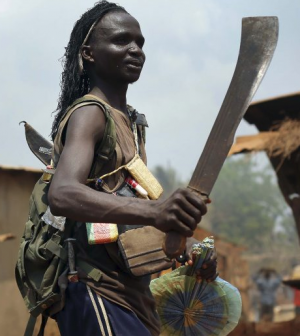Civil Militias
DATE Africa > Non-State Threat Actors and Conditions > Civil Militias ←You are here
The clan political differences are frequently exploited by civil militia leaders in their quest to plunder what remains of Nyumba’s resources. Natural and cultivated distrust of centralized political authority and state institutions like the military has further balkanized the various tribes and clans. Many of the clans and alliances form along ethnic, clan and religious lines. Most importantly, ethnicity is used by state and non-state entities as a rallying point to mobilize different elements for war.
Historical Clan-based Hegemony
During the previous administration’s regime, military rule by the president’s historical clan became a defining characteristic of political life in Nyumba. The president’s alliance exercised dominance over other clan families throughout his military rule. The political exclusion of other clans and a crackdown on the religious establishment became the primary source of conflict between the regime and those excluded from the mainstream politics, economics and social spheres of the country.
The group’s internal power struggles aided forces external to the government in engineering its defeat. After the regime’s collapse, the alliance returned to their historical infighting and became one of the many civil militia groups. Despite the changes in leadership throughout the ensuing years, Nyumban officials are consistently accused in the press of patronage of one group or another for personal and political advantage. The previous regime attempted to slow its disintegration by identifying and scapegoating various clan groups as the source of trouble.
Without a clear and legitimate central government capable of filling the vacuum, there were numerous fragmented civil militia groups, organized along clan patronage and lineage. These groups developed out of necessity and quickly assumed the responsibility of protecting their people and specific interests. Clans provided civil militia leaders and new militia recruits, as well as materiel support. The availability of large numbers of small arms in Nyumba also supported the arming and evolution of civil militia groups, and lies at the source of the current conflict. Ongoing clan skirmishes and heightened suspicions created an unstable and often violent security situation that remains into the present.
Civil Militias
The Nyumban civil militia groups operate and thrive in conditions of state disintegration in areas with little or no state control. The armed members of these groups are usually males between the ages of 16 and 40 years who have often served as police or even military in the past. Many of the roving gangs will be younger, but groups of older men and possibly women may arm themselves to respond to threats.
Civil militia groups are often organized along very narrow political lines, religious intolerance, and ethnic exclusion. Factional militias are the most prominent type of armed group, and are often formed along clan political structures, where they represent the clan’s political aspirations and defend its territory. These militia groups have the propensity to create division to squeeze benefit from the anarchy of a failing state. The emergence of civil militia-controlled areas in Nyumba and northern Nyumba has created problems for border enforcement and the lucrative mining and tourism sectors.
Civil militia groups, regardless of affiliation or violent activities, have been vilified and defined as threat groups in relation to the United States global war on terror. While some groups have been affiliated with Hizbul al-Harakat and the Islamic Front in the Heart Africa (AFITHA), others merely exist for group protection in a volatile security situation. Nyumban government officials have highlighted alleged terrorist affiliations to attract international support. Cross-border violence is often blamed on civil militias, but not all have been substantiated. Nyumba officials have accused Nyumban military elements of conducting raids into Nyumba to gain supplies or to assist criminal trafficking.
| DATE Africa Quick Links . | |
|---|---|
| Amari | Political • Military • Economic • Social • Information • Infrastructure • Physical Environment • Time |
| Kujenga | Political • Military • Economic • Social • Information • Infrastructure • Physical Environment • Time |
| Nyumba | Political • Military • Economic • Social • Information • Infrastructure • Physical Environment • Time |
| Ziwa | Political • Military • Economic • Social • Information • Infrastructure • Physical Environment • Time |
| Other | Non-State Threat Actors and Conditions • Criminal Activity • DATE Map References • Using The DATE |

